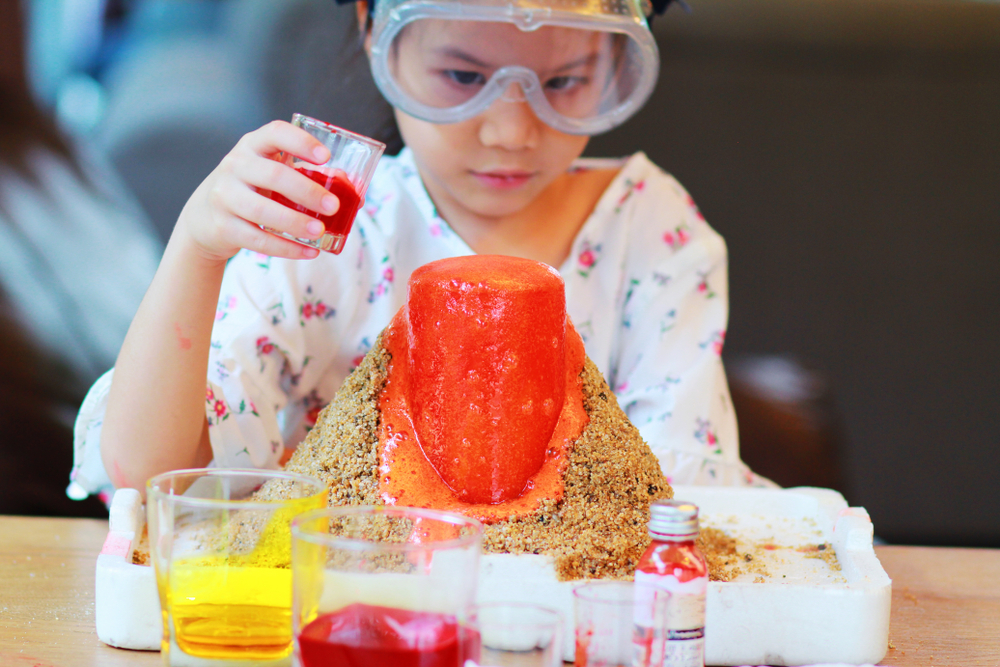Normal Poems Worksheets Activities With Answers for Ages 5-7
7 filtered results
-
From - To
Discover our collection of Normal Poems Worksheets designed specifically for ages 5-7! These engaging activities help young learners explore the joy of poetry through fun and interactive exercises. Each worksheet includes simple poems that enhance reading and comprehension skills, along with answer keys to aid parents and teachers. Our thoughtfully crafted activities foster creativity, allowing children to express their feelings while developing their vocabulary. Ideal for classroom or home learning, these worksheets provide a fantastic way to introduce children to the world of poetry. Encourage a love for literature with our delightful poem activities that inspire imagination and critical thinking skills!


Rhymes in Poems Worksheet
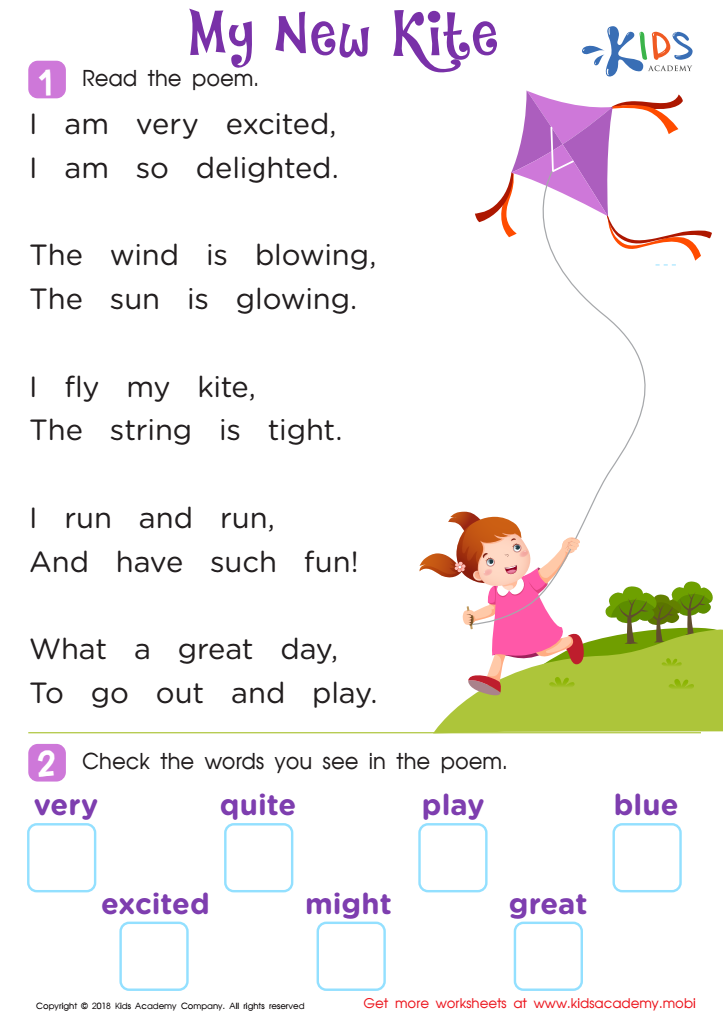

Poem: My New Kite Worksheet
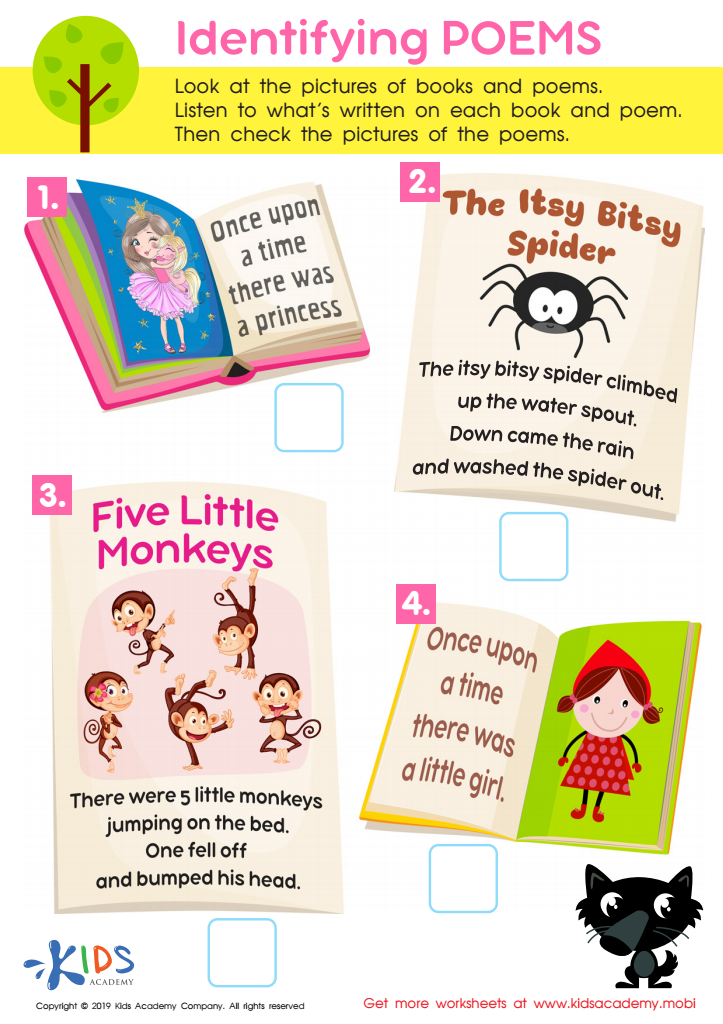

Identifying Poems Worksheet
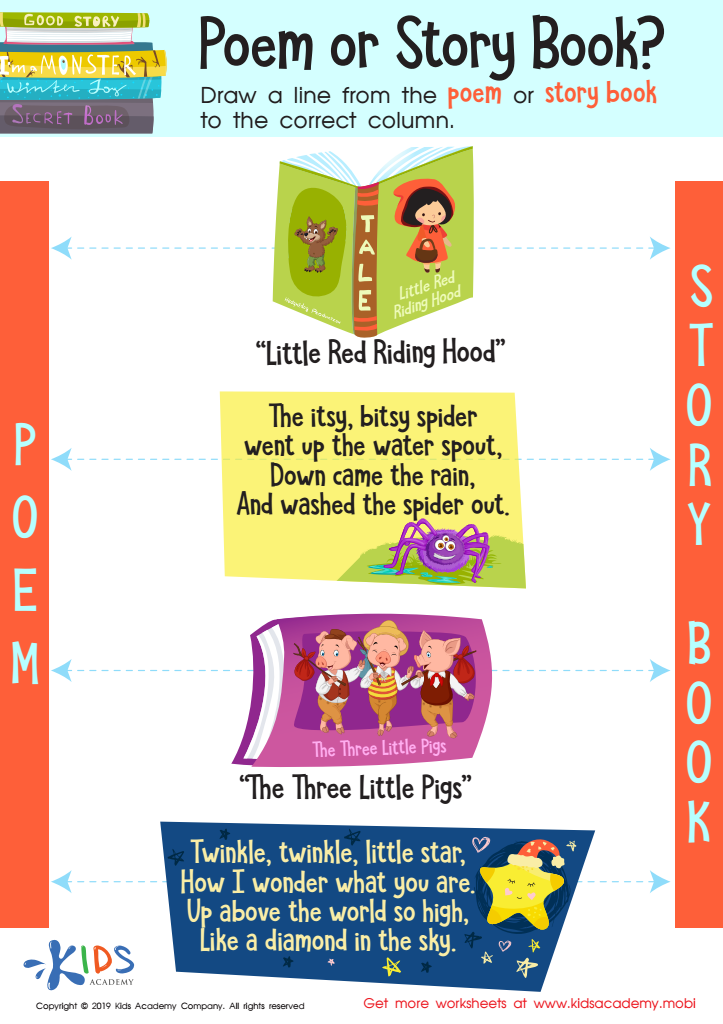

Poem or Story Book? Worksheet
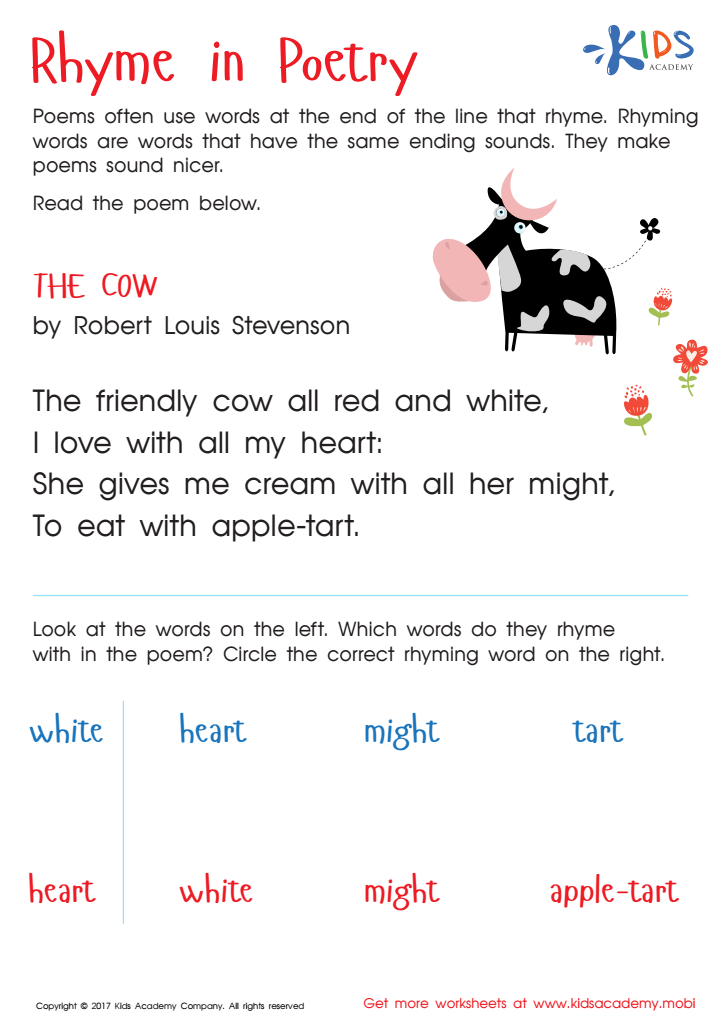

Rhyme In Poetry Worksheet
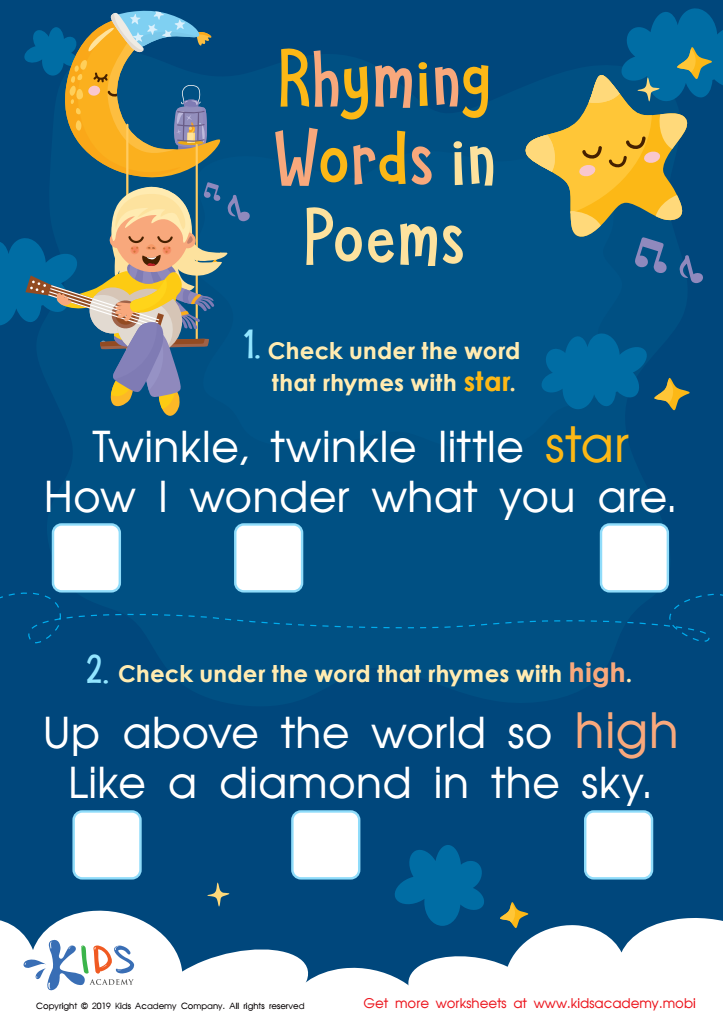

Rhyming Words in Poems Worksheet
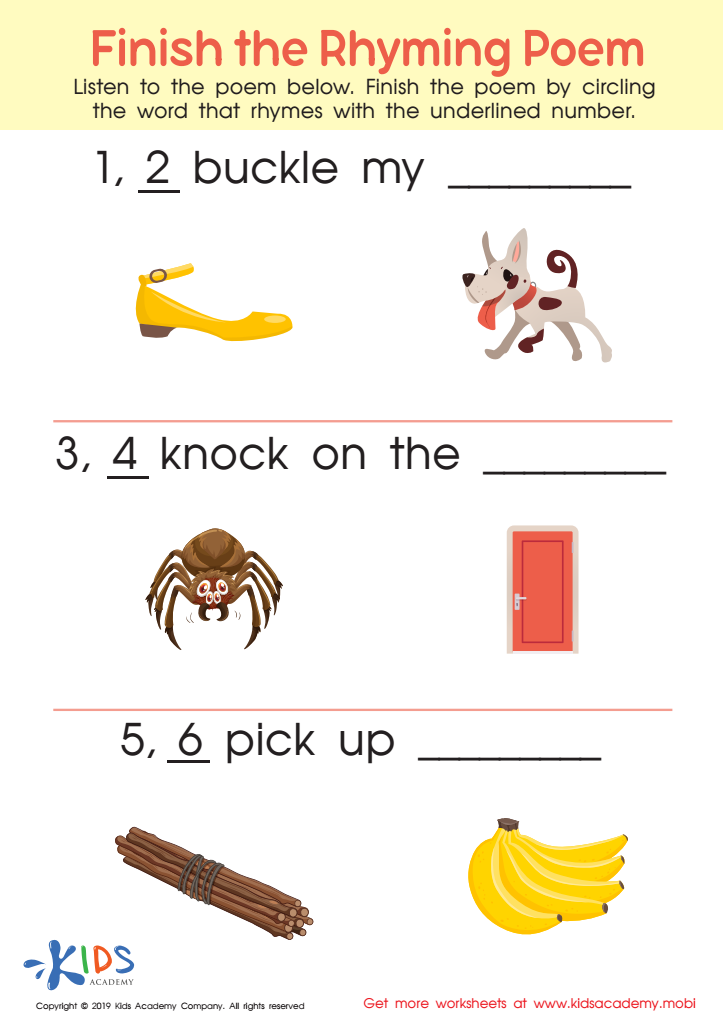

Finish Rhyming Poem Worksheet
Parents and teachers should prioritize Normal Poems activities for children aged 5-7 because these activities play a crucial role in early literacy development. Engaging with poetry nurtures vocabulary, rhythm, and phonemic awareness, fundamental skills as children begin reading and writing. By exposing young learners to poems, adults can foster a love for language, captivating children's imaginations and enhancing their creativity.
Additionally, Normal Poems activities promote emotional intelligence and expression. Poetry allows children to articulate feelings and thoughts in a safe environment, helping them build confidence in their communication. When children create or respond to poems, they learn to interpret emotions, understand different perspectives, and articulate their own experiences.
These activities also encourage critical thinking and comprehension skills. Through discussions and reflections on poems, children practice making connections, predictions, and analyses that are foundational for higher-level reading comprehension as they progress.
Ultimately, incorporating poetry into daily learning helps create a rich, multifaceted educational experience, where children not only gain essential literacy skills but also develop their social and emotional competencies. Thus, both parents and teachers should recognize the value of poetry as an engaging and effective teaching tool for younger learners.

 Assign to My Students
Assign to My Students






